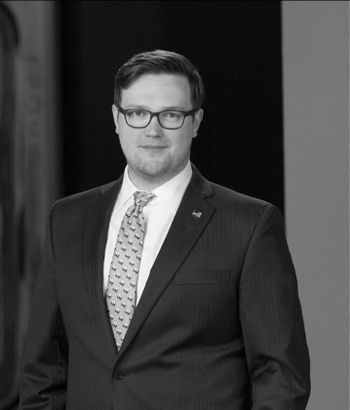ANALYSIS: Elite universities tout diversity just for show
67% of Harvard University’s undergraduate population comes from 'the top [20%] of the income distribution. Just 4.5 percent, meanwhile, come from the bottom 20 percent.'
For all their professed commitment to diversity, the nation's top universities share one common admission criterion: be rich.
For all their professed commitment to diversity, “Ivy Plus” schools – Ivy League institutions plus the Massachusetts Institute of Technology, the University of Chicago, Stanford, and Duke University – all share a common admission criterion: be rich.
A study featured in The Atlantic reveals that low-income students have little chance of being accepted to Harvard University, one of the two schools targeted in lawsuits by Students for Fair Admissions.
The July 2023 study comes from the think tank Opporutnity Insights, ironically based at Harvard.
Its analysis of admissions data from Ivy Plus universities reveals a whopping advantage for students with family incomes in the top one percent. In fact, even with equal SAT/ACT scores, one percenters are twice as likely to get accepted as low- to middle-income students, as the graph from the study below shows:

Source: Opportunity Insights
Overall, 67% of Harvard’s undergraduate population comes from “the top [20%] of the income distribution. Just 4.5 percent, meanwhile, come from the bottom 20 percent.”
As seen in the chart below, this theme extends to minority communities as well, where a significant 71% of Black, Hispanic, and Native American students at Harvard originate from the highest socioeconomic quintile within their respective racial groups nationwide, according to Time.

“Furthermore,” the authors write, “being admitted to an Ivy-Plus college dramatically changes children’s life trajectories.” If students want to join the one percent, become a U.S. Senator, or win a MacArthur “genius” grant, then they should pursue Ivy Plus schools, as graduates are disproportionately represented in these exclusive groups.
Because elite university graduates funnel into other elite institutions, the authors–who themselves are Ivy League economists–argue that reforming Ivy Pluses will diversify coveted leadership positions and awards. Their call to increase socioeconomic diversity is an admirable attempt to resolve the main issue with these schools: they’re not meritocratic, and they’re not diverse.
After all, merit, not wealth, should pave the way to the Supreme Court, major media outlets, or Fortune 500 C-suites.
When the Supreme Court heard Students for Fair Admissions v. Harvard, the public gained unprecedented access to admissions data. What Harvard’s admissions officers do behind closed doors reveals that its public support for diversity is just for show.
What Harvard wanted was a student body that seemed diverse, presenting a public image that legal analyst Sarah Isgur called a “Benetton ad.” Cut past the advertisement, and the student body was surprisingly homogenous. The vast majority of admitted students belonged to the top 50 percent of income, according to Isgur’s interview on the Honestly podcast.
[RELATED: OPINION: Leftist academics could learn something from Tyler Austin Harper]
These rich students arrived at a campus that professes its commitment to marginalized identities like “People of Color,” but Harvard’s commitment has nothing to do with helping the socio-economically marginalized and everything to do with helping elites maintain their status.
For too long, elite universities have monopolized the path to success. But the disappointing data from the Supreme Court case, and example after example of leftist indoctrination, lead to the question that begins The Atlantic article: “What does Harvard do?” The answer is a lot of damage, and undoing it–rebuilding meritocracy–requires pushing back on which universities count as “elite.”
But creating a meritocratic society, contrary to the study, should not depend on admitting more students to “Ivy Plus” schools. Given leftist indoctrination on these campuses, students who want a world-class education leading to prestigious careers should go elsewhere and prestigious employers should reconsider sourcing their talent from activist factories.
[RELATED: ANALYSIS: Academics think a 4-year degree is everything, employers disagree]
Activism has replaced scholarship, with the latest report from Campus Reform showing that Harvard housed a so-called “misinformation and disinformation” expert who exclusively targeted Republicans. The activist scholar, meanwhile, dismissed the censorship of left-leaning tech companies.
Christian liberal arts universities like Hillsdale are well-suited to fill the void.
At Hillsdale, where students enjoy a classical education, their skills and curiosity put other campuses to shame. In other words, Hillsdale students discuss Aristotle, while students at Stanford and other elite schools shout down speakers.
In teaching students what to think but not how to think, elite universities do a double disservice. Harvard and company act as gatekeepers to prestigious positions, effectively shutting out students from diverse backgrounds. They also do the public a disservice in creating a social justice-oriented professional class that is responsible for everything from woke capitalism to bad art.
Follow Jared Gould on Twitter for more stories like this.
Editorials and op-eds reflect the opinion of the authors and not necessarily that of Campus Reform or the Leadership Institute.

